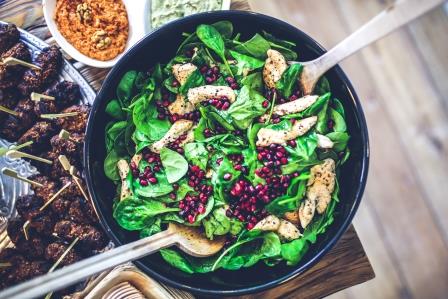When Preethi Kamath came in for her first antenatal appointment, she was worried about her first trimester diet.
“The women in my family gave me a whole list of foods I was told to completely avoid” she said. “Seafood, cheese, meat, raw vegetables, and even some fruits! So that narrowed down my choices considerably. And if there was anything left on that list, I couldn’t eat it because I couldn’t stand the smell of food anyway.”
Preethi’s little anecdote is a usual story for most women settling into their first trimester, which ends with the 14th week of the pregnancy. Managing the first trimester diet can be challenging because women are likely to feel quite unsettled at this time.
“The first trimester is a time of simultaneous excitement and upheaval for your body” says Dr. Anita Sabherwal. “Your body is experiencing change, so it’s natural for things to feel different.”
Dr. Sabherwal is of course referring to the nausea and vomiting – also called morning sickness – that many women experience during the first trimester. A direct consequence of morning sickness is not being able to eat well because of the nausea, and then worrying about the baby’s well-being and growth.
“If the nausea is excessive and you’re not able to retain food at all, then we suggest medication to overcome the sickness.”
First Trimester Diet – How to Eat Well
“For me, the nausea got so bad, my doctor advised me to keep a box of salted crackers next to my bed” Preethi said. “I would nibble on a couple before getting out of bed and it made me feel a lot better. I was also advised to take folic acid supplements.”
You can also ease your nausea with bland foods like: 
-
- Boiled rice
-
- Bananas
- Crackers or dry toast
“One of the first changes we made at home was that we stopped eating out completely” Preethi said.
“I couldn’t handle oily or spicy food at all, so eating at home turned out to be the best option. That way, I could also control how much I exposed myself to strong odours and flavours.”
You’ll also need to structure your meals differently when you’re pregnant. A few easy changes, like eating smaller and more frequent meals, 6 to 8 times a day, consciously staying hydrated throughout the day, and adding a light bedtime snack before bed will help you control your nausea.
“You’ll gradually need to add more calories and proteins to your diet in the latter half of your pregnancy” says Dr. Sabherwal “but you don’t need them in the beginning. Right now, you need to focus on the quality of the food you eat while your body gets used to all the changes and your developing baby.”
Overall, the first trimester is a time to take things easy. If you can’t stand to be around certain food smells, then don’t be around them, and eat what feels good to you. And don’t worry about losing weight or not gaining enough weight. Once the first trimester passes, you’ll feel differently and a lot better.
 This article has been written with Dr. Anita Sabherwal Anand, Consultant, Obstetrician-Gynecologist at Sitaram Bhartia Hospital in South Delhi. Dr. Anita is a highly qualified gynecologist with 20+ years of experience who is trusted by low-risk and high-risk mothers alike for her guidance on having a healthy pregnancy and delivery.
This article has been written with Dr. Anita Sabherwal Anand, Consultant, Obstetrician-Gynecologist at Sitaram Bhartia Hospital in South Delhi. Dr. Anita is a highly qualified gynecologist with 20+ years of experience who is trusted by low-risk and high-risk mothers alike for her guidance on having a healthy pregnancy and delivery.
Seek expert advice from our expert gynaecologist. Come in for a consultation at our hospital in South Delhi. Please call on +91 9871001458 to schedule a consultation.
You may also like:


